Tensions between Russia and Ukraine are renewed, this time in the Council of Europe
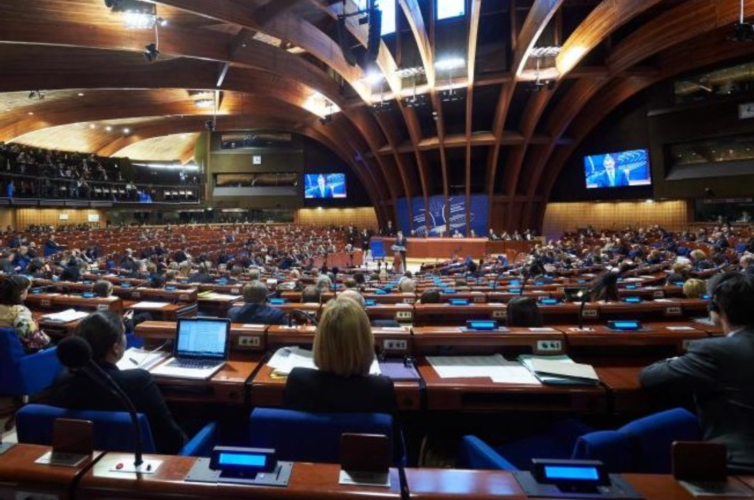
The tension between Ukraine and Russia within the Council of Europe is growing regarding the composition of the new delegation sent from Moscow.

The tension between Ukraine and Russia within the Council of Europe is growing regarding the composition of the new delegation sent from Moscow.
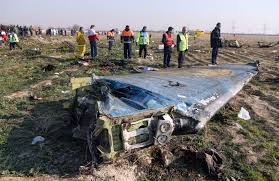
In breaking news from Ukraine, intercepted communications were released by TSN.Tyzhden between Tehran Airport tower and second pilot of Iran’s Aseman Airlines flight at the time of the crash of Ukraine International Airlines flight PS752. The Iranian civilian plane’s pilot saw both the missile launch and the blast, audio recordings, TSN says were received from intelligence services, prove.
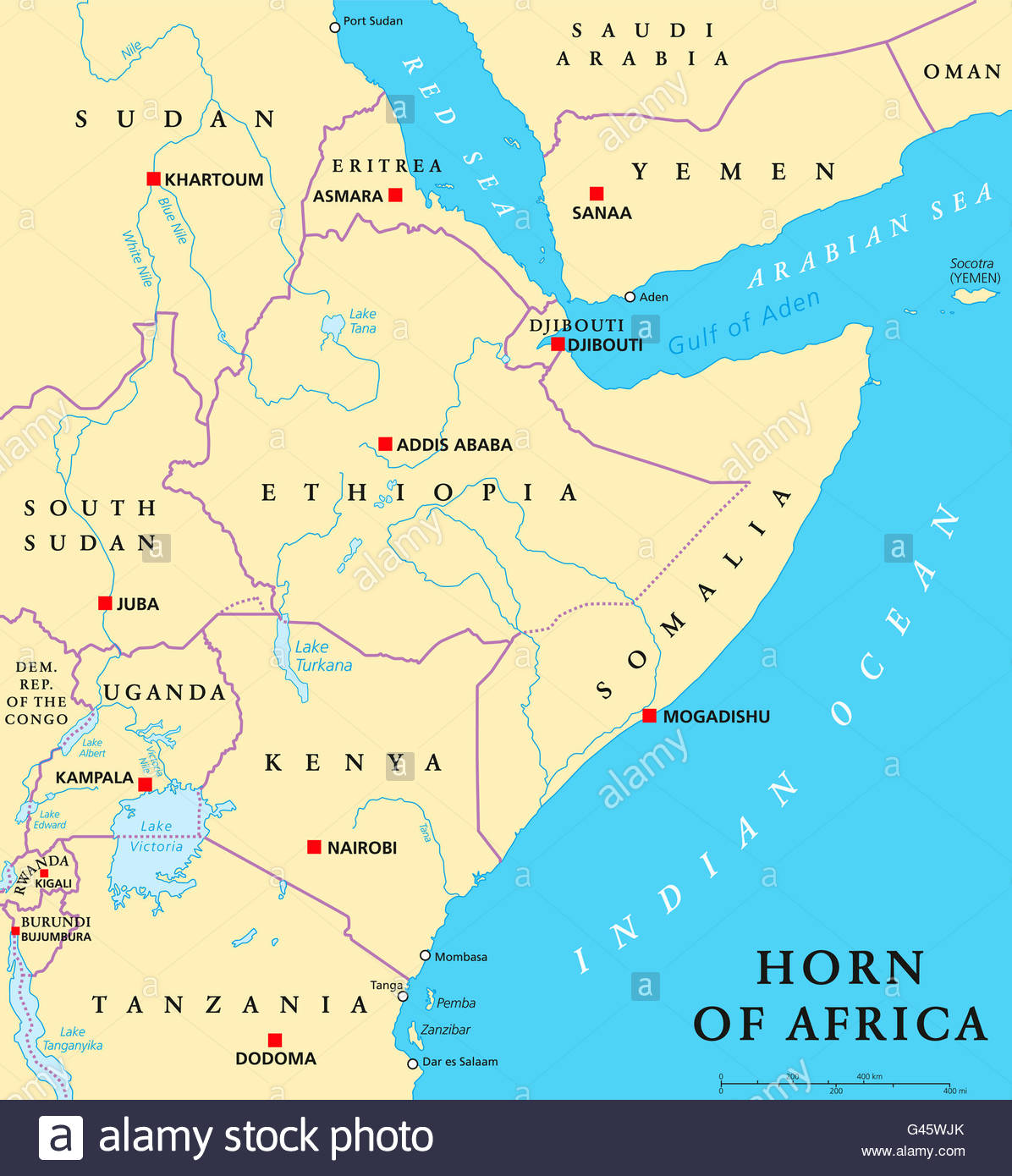
Usually, when people talk about Saudi Arabia and its hegemonic policies, we tend to relate to the well-known rivalry between the monarchy and Iran, two capillary actors in the Middle East, who compete for the leadership in the region. Keep Reading

On Tuesday 8th January, US Secretary of State Mike Pompeo opens his tour in the Middle East visiting Jordan.
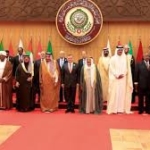
On 15th April the 29th edition of the Arab League Summit ended. The meeting, held in Dharan (Saudi

BANGUI – At least 135 people have been injured in the worst outbreak of violence in years in the Central
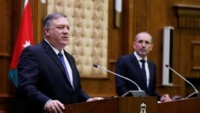
On Tuesday 8th January, US Secretary of State Mike Pompeo opens his tour in the Middle East visiting Jordan. The tour originally scheduled nine stops, including Iraq, Egypt, Bahrain, the UAE, Qatar, Saudi Arabia, Oman and Kuwait. However, due to family reasons, Pompeo had to cancel the final leg in Kuwait.
This tour comes at a time when the US is changing his policy toward Middle Eastern issues and his allies are questioning the new approach.
After the President Trump’s withdrawal from the JCPOA (Joint Comprehensive Plan of Action), the nuclear deal signed with Iran and other Western countries during Obama’s administration, on 19th December the US President announced with a video on Twitter that he was pulling US forces out of Syria “now”.
Pompeo’s tour in the Arab countries can, therefore, be seen as an opportunity and means to clarify US position regarding Syria but also more broadly to define US policy in the Middle East.
Here the main points on the table.
– US withdrawal from Syria does not mean that the US is withdrawing from the fight against the Islamic State, which is still a top priority for the White House. US partnership with the Arab countries, indeed, is essential to achieve some shared objectives in the region: defeating Daesh, countering Islamic terrorism, protecting global energy resources and countering Iran’s aggressive behaviour.
– Unity among the GCC(Gulf Cooperation Council) is vital to achieving security and stability in the region. As Pompeo stressed, the internal dispute among the Gulf monarchies has gone far too long. Since June 2017, indeed, the Arab Quartet (UAE, Egypt, Saudi Arabia and Bahrain) cut the diplomatic relations with Qatar, accusing the country of funding terrorist groups and fostering instability in the Middle East. As a matter of fact, this situation hampers the efforts of the GCC to achieve common goals in the region. The GCC is a capillary institution in the Middle East: hence, its internal cohesion is an essential factor for the stability, prosperity, security and peace in the area.
– The US strongly promotes the institution of a Middle East Strategic Alliance, also nicknamed Arab NATO. This organisation would join the GCC militaries with the militaries of other Arab countries, such as Egypt and Jordan. This alliance would mainly counter Iran’s aggressive behaviour and protect the stability and security of the Arab countries.
– US-Saudi relation is crucial for the stability in the region. In the Khashoggi issue –not clear if and how much Pompeo and the Saudi leader discussed it- President Trump stood by Saudi Arabia and this event –though clarification is still needed- has no hampered the relationship between the two countries. Saudi Arabia is a key actor in the anti-Iranian coalition. Moreover, the value of the arms purchases from Saudi Arabia is still a relevant fact for the US to consider.
– Last but not least, Pompeo reiterates the need for peace in Yemen and call to boost effort in order to stop the bloody civil war that has been devastating the country for more than 3 years.
Trump administration approach in the Middle East has clearly moved away from Obama’s path in the past years, with the president not even trying to hide the criticism toward his predecessor. Indeed, Trump has repeatedly blamed Obama’s administration for his approach in the region, accusing of underestimating threats such as Daesh or Hezbollah.
In the past few months, Trump has withdrawn from the nuclear deal with Iran and announced the imminent withdrawal from Syria; however, this does not mean a less presence or US interest in the regional issues, but it is a signal of a different posture. If Obama opted for engagement rather than confrontation with a country like Iran, Trump is taking the opposite path.
Note to mention that Iran, however, is not the kind of player that stays still and watches. By contrast, Teheran is strengthening its position in the region, supporting groups like Hezbollah in Lebanon and the Houthis in Yemen. Moreover, it can count on some strategic allies, such as Syria, Russia and Turkey.
The risk is that the US might get engaged in a more complex and dangerous conflict that it could seem at first glance. Moreover, thought the US is working to align the Arab countries on the same path and join the effort toward the same goal -stability and security- there is still an important factor to consider. The Middle East is still sharply fragmented -ethnic division, religious schism, political rivalry, etc- and those countries that do not follow the US ideal of Middle East Strategic Alliance , like Iran, Syria, even Turkey or Yemen, play a peculiar role in the game, as their actions or the developments in their territories may considerably affect Washington’s project.
Hence, eyes on Trump and the Arab countries, as the withdrawal from Syria might not be the last twist of Trump’s policy in the Middle East. Moreover, the White House’s decisions may also trigger unexpected reactions of other players, as could be yesterday’s suicide bombing in Syria, the first one after Trump’s announcement, easy to relate to latest developments.
Paola Fratantoni

Usually, when people talk about Saudi Arabia and its hegemonic policies, we tend to relate to the well-known rivalry between

The 39th GCC (Gulf Cooperation Council) summit held in the Saudi capital Riyadh last Sunday. The
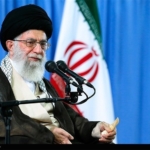
Leader of the Islamic Revolution Ayatollah Seyed Ali Khamenei urged efforts for scientific progress in the Islamic world, voicing Iran’s

The 39th GCC (Gulf Cooperation Council) summit held in the Saudi capital Riyadh last Sunday. The GCC is an inter-governmental organization of six oil-exporting countries in the Middle East. Founded in 1981 in Riyadh, the GCC is a political and economic alliance and its member states (Saudi Arabia, Kuwait, Qatar, United Arab Emirates-UAE, Oman and Bahrain) promote cooperation and unity within the region, pursuing common goals and protecting the cultural and identity values of the Islamic world. This alliance aims to strengthen relations between member countries at political, economic, cultural and military levels. The GCC has, indeed, a council for defence planning, which coordinates military cooperation between the six countries.
This harmony broke in June 2017, when the “Arab quartet” (Saudi Arabia, Egypt, UAE and Bahrain publicly accused Qatar of supporting and financing terrorist groups. The quartet broke the diplomatic relations with the country and imposed air, naval and land embargoes. This event compromised the relations among the countries, but also the role of the GCC itself. Its credibility as a unified organization and a benchmark for the interests of the region is now inevitably questioned, as its ability to effectively guarantee unity, security and stability in the region.
Tensions are still high, especially after Qatar’s withdrawal from OPEC, the Organization of Petroleum Exporting Countries – and the summit held in Riyadh is further confirmation.
It did not go unnoticed the absence of Tamim bin Hamad Al-Thani, Emir of Qatar, who sent his foreign minister instead. A quick reaction came from the Foreign Minister of Kuwait, Sheikh Khalid bin Ahmed Al-Khalifa, who criticized the absence of the Emir at the summit. Despite the tension, the summit took place following the objectives of the alliance, thus addressing issues related to the regional security, social, economic and political dynamics. During the opening meeting, the Saudi King Salman emphasized the need for greater cooperation to achieve regional stability and security. “The region goes through challenges, terrorism, and the Iranian threat,” said the Saudi monarch, who also urged the achievement of a political solution in Yemen. For years a civil war has devastated the country, thus fuelling instability in the Middle East and antagonisms between regional and global powers. Palestine, one of the organization’s top priorities, and Iran, a threat to monarchies and regional balance, were on the table too.
However, one of the biggest challenges that the GCC is currently facing is its own internal schism. Saudi Arabia, Bahrain and the UAE openly oppose Qatar, while Kuwait and Oman are neutral to the disputes. The Emir of Kuwait, Sheikh Sabah Al Ahmad stressed the need to solve this division, calling on member states to strengthen unity and cooperation within the alliance, thus preserving the GCC position and role, and safeguarding the interests of their peoples. Here the seven steps listed in the Riyadh Declaration, signed at the end of the conference, essential to carry forward the objectives of the alliance.
1. Integration. The Council approved the development of a roadmap that includes the activation of the procedures necessary to achieve the objectives of integration between the GCC countries and to create a framework for their relations with the international community. Integration is intended here at multiple levels, from harmonizing economic reforms within the GCC countries to strengthening the security and stability of the region, improving the performance of the Council itself and consolidating its role both at regional and international levels.
2. Adherence to the time schedule for the implementation of economic reforms. The GCC countries set a plan to achieve economic integration among member states: the Council renews the importance of respecting these deadlines. Economic integration is, indeed, an essential step to set favourable conditions for a “Gulf” market and a customs union.
3. Collective defence. During the summit, member states appointed the commander of the unified military command of the GCC, an important step for the formation of a collective defence system. Furthermore, directives were given in order to speed up the procedures for the activation of this command and for the foundation of the Gulf Academy of Strategic and Security Studies. The aim is to give the command solid grounds and to form a qualified “Gulf” military class.
4. Security. The GCC leaders emphasized the need to maintain the security and stability of the region, combat terrorist organizations and extremist ideologies, through the promotion of values of tolerance, pluralism and justice, a benchmark of the Islamic religion and the Arab tradition.
5. Unified foreign policy. The leaders of the six countries underline the importance of unity in foreign policy, basing choices on the Council Statute and working to preserve regional interests and avoid local and international conflicts. They renewed their support for the Palestinian cause and the commitment to help the “brothers” in Yemen and other Arab countries to achieve peace, prosperity and security in their countries.
6. Strengthen strategic partnerships. In today’s environment, it is essential to strengthen strategic partnerships, at economic, cultural, military and political levels, among GCC members, between them and their friendly nations, as well as with different regional blocs. The GCC summits, therefore, renew their commitment to assist friendly countries, through humanitarian and development programs.
7. Maintaining the objectives achieved by the Council. At a time when the credibility of the GCC is being questioned, the leaders of the member countries reaffirm the value of the objectives achieved to date, the need to preserve them and to continue to promote projects aimed at achieving the goals of the organization.
Although the summit was valued positively, as claimed by the Emir of Kuwait, the major obstacle to achieving the GCC objectives is the schism within the group. To date, there is no concrete basis for an improvement in the situation.
During an event at the Council on Foreign Relations, the American think tank, Sheikh Mohammed bin Abdulrahman Al-Thani, Deputy Prime Minister and Minister of Foreign Affairs of Qatar, expressed little positive opinion about the possibility that the GCC will continue to play that role of a unitary block that he had gained over the years. “When the GCC crisis started and they started, they enforced the blockade on Qatar, it changed everything. It changed the perspective on the eyes of the people. Shows that the GCC became an ineffective tool even to resolve its own problem because we would not be able to reach such a level of tension “.
On the other hand, the UAE and Saudi Arabia keep firmly their positions. The recent exit of Qatar from OPEC does little to reassure the minds. Beyond the economic aspect – hence the possibility of increasing the production of crude oil without the restrictions imposed by the Organization (though Qatar has declared an intention to invest massively in natural gas- the choice of the monarchy is seen as a challenge to the predominant role of Saudi Arabia and, therefore, an attempt to change the balance of the Middle Eastern geopolitical chessboard.
Worth to mention that all is happening in a region where Iran still is a destabilizing factor, the civil war in Syria is far from a solution, the Arab-Israeli conflict is vividly alive, the proliferation of terrorist groups does not stop and the interests at stake they are high.
Although the GCC could have been – and potentially still could be- the actor capable of guaranteeing order and security in the region, the road to actually achieving this goal seems to be far longer and more impervious than the Arab leaders have outlined on Sunday. To give stability to a region characterized by conflicts, struggles for hegemony, cultural and religious differences, it is primarily necessary to achieve internal unity among those who want to be the active players of this change. Perhaps, among the points of the declaration, a “solve our internal schism first…” should have been written …
Paola Fratantoni

On Tuesday 8th January, US Secretary of State Mike Pompeo opens his tour in the Middle East visiting Jordan.

The emir of Kuwait, Sheikh Sabah Al Ahmad Al Sabah, warned of the collapse of the Gulf Cooperation Council (GCC)
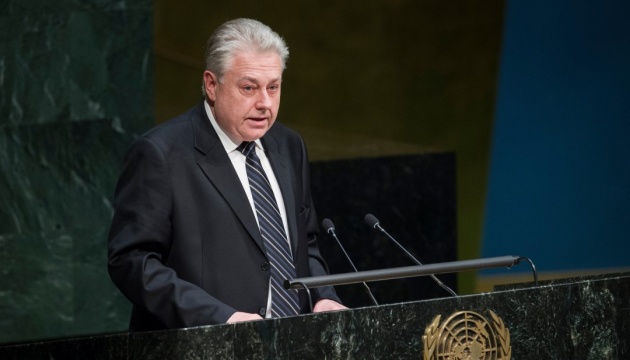
Ukraine’s delegation has informed UN member states of Russia’s consistent and gross violations of international law in the Sea of Azov and the Black Sea, the Permanent Mission of Ukraine to the United Nations has reported.
“UNCLOS [the United Nations Convention on the Law of the Sea] provides Ukraine with exclusive rights to the living resources within its territorial sea and exclusive economic zone. Since 2014, the Russian Federation has deliberately and blatantly violated those rights in the Black Sea, the Sea of Azov and the Kerch Strait,” Ukraine’s Permanent Representative to the UN Volodymyr Yelchenko said, while addressing the UN General Assembly on December 11.
He informed the audience that in February 2018, Ukraine filed a Memorial with the UNCLOS Tribunal establishing that Russia has violated Ukraine’s sovereign rights in the Black Sea, the Sea of Azov, and the Kerch Strait.
“Through these violations of international law, Russia is stealing Ukraine’s energy and fisheries resources, harming the livelihoods of Ukrainian fishermen, and blocking traffic to Ukrainian ports with its illegal bridge over the Kerch Strait, among other serious violations,” he said.
The diplomat also emphasized that since April 2018, more than 200 vessels have been discriminately stopped by Russia in violation of fundamental obligation under UNCLOS. He added that the Russian Federation did not stop on that and engaged in “new horrible violations of UNCLOS.” “Just 2 weeks ago, Russia attacked, seized and detained Ukrainian navy vessels in Ukraine’s exclusive economic zone,” Yelchenko added.
“Ukraine believes that Russia must and will be held accountable for its serious breaches of the international law of the sea,” the Ukrainian diplomat said.
On December 17, the General Assembly of the United Nations will consider a draft resolution on the militarization of the occupied Crimea by the Russian Federation, taking into account Russian aggression in the Kerch Strait, and in particular the seizure of Ukrainian vessels and crew. At the same time, representatives of the United States, UK, Lithuania, Sweden, Germany, Estonia, Croatia, the Netherlands, Poland, Georgia, Latvia and Canada, stated in their addresses that they had co-authored the draft resolution.
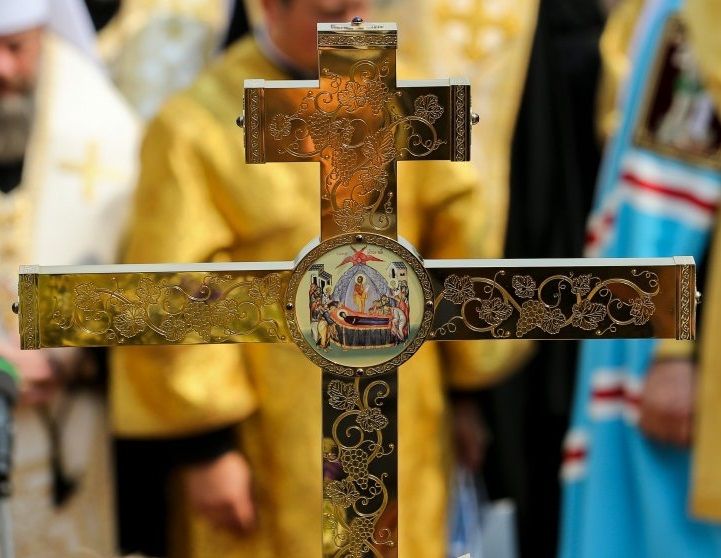
The Holy and Sacred Synod of the Ecumenical Patriarchate has drafted the Ukrainian church’s constitutional charter in anticipation of the issuance of the Patriarchal and Synodal Tomos.

The president stressed that concrete steps should be taken to stop Russian aggression. Ukrainian President Petro Poroshenko has said Russian President Vladimir Putin threatens NATO’s eastern borders.
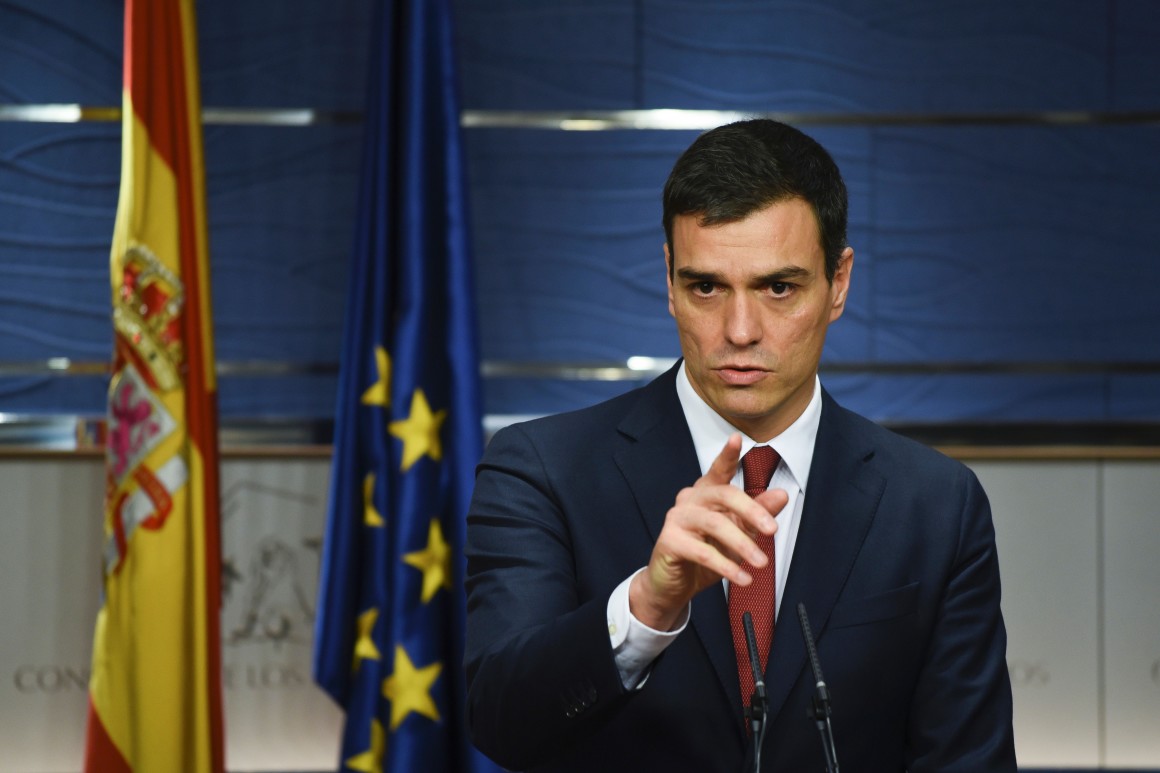
The seventh president of the government after the restoration of democracy, Pedro Sánchez, surrounded himself with a large majority female team: he has 13 to 17 portfolios, including 11 women in the heaviest areas. A group of “personalities” who have “parked” successful careers to serve Spain, according to Sánchez on Wednesday. Progressivism, Europeanism and the commitment to equality were the characteristics that stood out, even if a look at the center is also deduced from the composition of the Cabinet. A team that with its specialization can immediately start doing politics. Sánchez appoints a progressive government. Almost all the elected representatives of the government are specialists in the subject that Sanchez has entrusted to them, so that they can start working immediately, after swearing or promising their positions and taking possession of their portfolios.
There is specialization, European experience, territorial distribution and, ideologically, various genuinely social-democratic faces – in health, education and employment; among these, first of all, Carmen Calvo in the vice-presidency, which also embodies the feminist potential and defense of equality that the head of government claims to pursue. Economic rigor borders with the liberal doctrine of the new Economy Minister, Nadia Calviño, and the Treasury owner, María Jesús Montero, does not leave orthodoxy. The vast party trajectory accumulates the Minister of Labor, Migration and Social Security, Magdalena Valerio, a member of the PSOE Executive in the areas of social security and the Toledo Pact, although she has maintained her job as an Inem official.

The flow of unaccompanied migrant minors in Spain has increased by more than 60% in 2017. With the increase in

German prosecutors are preparing the paperwork to extradite former Catalan leader Carles Puigdemont back to Spain on charges of rebellion
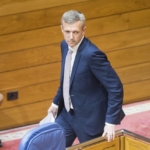
Juan Jose Martin has announced that the Government of Galicia has given to the justice unions a period of three

The official media of the Democratic People’s Republic of Korea (DPRK) today called on the international community, in particular the countries which share responsibility for peace on the Korean Peninsula, to back peace-building efforts there. The official Minju Joson daily said that the May 24 dismantling of the DPRK’s northern nuclear test ground “testified in practice, not in words, to the firm will of the DPRK to join the international efforts for the total ban on nuclear tests.” DPRK top leader Kim Jong-un and US President Donald Trump are scheduled to meet on June 12 in Singapore, the first such summit to be held since the end of the 1950-53 Korean War.
“The present situation urgently requires countries responsible for peace and stability on the Korean Peninsula to take practical steps for peace on the peninsula from a responsible and serious stand and attitude,” said the daily. “Invariable is the stand of the DPRK to ensure peace and stability on the Korean Peninsula and make active contributions to world peace and stability,” it said.
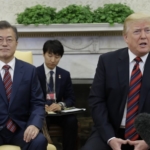
After days of touting success in managing to bring the leader of the rogue nuclear regime to the table for

After North Korea threatened to pull out of the high-level talks between Kim Jong Un and U.S. President Donald Trump,

The South and North will hold a high-level inter-Korea meeting on May 16 in the Peace House in Panmunjom, to
